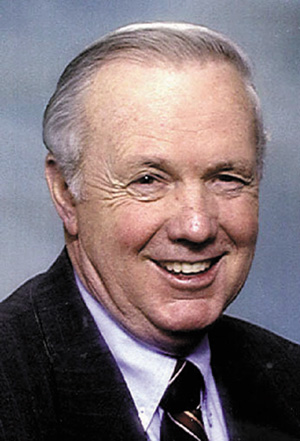No. 490 - THE GREATEST BARRIER TO COMPREHENSION
No. 490
Jim Davidson - NEWSPAPER COLUMN
THE GREATEST BARRIER TO COMPREHENSION
When it comes to understanding, the Scottish essayist Thomas Carlyle (1795-1881) had this to say: "Not the logical, argumentative, but the intuitive; for the end of understanding is not to prove and find reasons, but to know and believe." There is another word for understanding, while not used too often in our society, but nonetheless has a tremendous impact on our ability to communicate and also on our individual prosperity. The word I am referring to is comprehension. According to the dictionary, this word means, "The mental grasping of ideas, facts, etc., or the power of so doing; understanding." While it may not be recognized in most circles, lack of comprehension is one of the greatest barriers to a young person acquiring a top-notch education. .
Several months ago I was watching the CBS Evening News and there was a feature about this topic that caught my attention. It was by me so fast that I did not have a chance to write down all the details, but in essence the report stated that the majority of students in our nation's schools could read fairly well, but a high percentage could not comprehend or understand what they had just read. If you would like to verify the validity of this report, if you have school-age children around, ask them to read a chapter of a book, at their own reading level, and then write a brief one- or two-paragraph summary of what it was about. This exercise would involve the big three - reading, writing and comprehension.
Now if what I am saying makes sense to you, I want to share the benefits of some educational ideas I learned several years ago while working for the Nightingale-Conant Corporation, the world's leader in motivational recordings. If you don't already know, in the process I believe I can help you have a better understanding of the greatest barrier to comprehension and what can be done about it. In a nutshell, here is the problem. Let's say we are reading a very interesting, but very challenging, book. We move along at a good pace, but every so often we come across a concept word, one that is not in our workable vocabulary, and we don't know what it means. Unless we take time to stop and look it up in the dictionary, we have had a disruption in the continuity of the flow of ideas.
This is the process that destroys our comprehension or understanding. A survey was conducted several years ago that discovered the average person uses 400 words or less, 80 percent of the time in their everyday conversations. When we consider the fact there are more than 800,000 words today in the English language, it begins to become clear why millions of people in our prosperous nation are not very effective communicators. It is often said that a great communicator knows big words, but uses little words. This is true, but the key to success is to know and understand the educational level of the audience or person with whom we are communicating. You would not use the same words speaking to a group of college professors as you would speaking to a class of fourth graders or with factory workers.
Please understand that I am not talking about the value of a human being, because in God's eyes we are all equal, but I am talking about our ability to have a rewarding life and career and to earn the kind of income we need to live a comfortable lifestyle.
This brings me to another very important point and I hope you will really tune me in. Another one of those tidbits I learned while working with the Nightingale people is the correlation between executive position, income and working vocabulary. This was another one of those surveys these people conducted, because this was their business and what they were getting paid to do. Believe me, this does have a bearing on your future, as it does mine.
A part of the survey with a number of major corporations was a test of the working vocabulary of all employees. Here is what they found. Presidents had the best vocabulary, mid-level managers were next, and then supervisors, foremen and right on down the line to the hourly or lowest-level employees in the company. While a number of things on the survey differed from one level to the next, without exception the only thing that was consistent was the individual's level of vocabulary and his income and position in the organization.
Based on the information I have just shared, you will have to be the judge as to whether or not you need to improve your vocabulary and are willing to spend a little time each day to do it. Here are a couple of suggestions that will pay you great rewards for the small investment of your time. First, when you sit down to read, have a good dictionary close by and look up the words that are not in your vocabulary. Next, use your dictionary to learn five new words each week. Copy the meanings down on a sheet of paper, because we retain so much more when we use a dual sensory input. Good luck!
(Jim Davidson is a motivational speaker and syndicated columnist. You may contact him at 2 Bentley Drive, Conway, AR 72034.)
